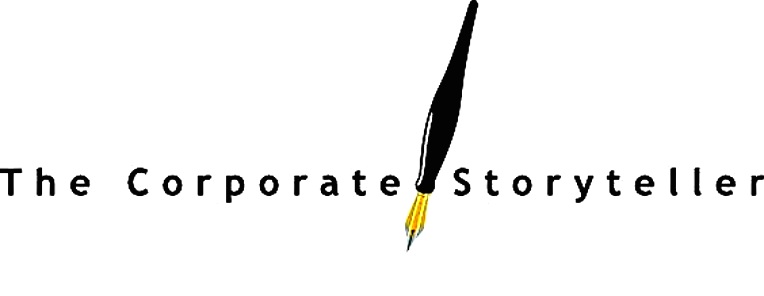1. Compatibility
It’s important that you and your writer are a good fit because writing a
book takes months to complete. Even if you leave much of the work to the
writer, writing a book is a personal endeavour and during those months you’ll
be in regular contact with your writer. You’re the expert, and your
ghostwriter’s job is to elicit from you the interesting facts and anecdotes and
stories – and angles – that will make the book an interesting and possibly
compelling read. If you’re a good fit, your writer and you will often start to
think about old things in fresh new ways. If you’re a bad fit, the book will be
the poorer for it.
Your writer should be interested in you and curious about your subject
from the very beginning and remain constantly curious about your subject and
your thoughts weeks and months later. For your part, you need to be as honest
and transparent as possible, because a good collaborator asks questions, lots
of questions. That doesn’t mean you need to be friends, but it does mean being
a team that maintains a positive and mutually respectful working relationship.
Just as the most effective teams are collaborative rather than hierarchical,
the best ghostwritten books are those in which subject matter expert and writer
are in sync. To borrow from Patrick Lencioni, the
relationship should be one of:
- trust
- willingness
to debate
- commitment
- accountability
- results
+Andrew Crofts may be the UK’s most popular celebrity ghostwriter.
He shares an interesting perspective on what a good writer brings to the
table, and his thoughts are equally applicable to business experts and
not-yet-celebrities:
“It is essential for the ghost to make the subject feel completely
comfortable and confident in his or her company. If they think the ghost is
going to criticise them, judge them or argue with them they will not relax,
open up or talk honestly. It is not the ghost's job to try to make them change
their opinions about anything or anyone, but rather to encourage them to tell
their story in the most interesting and coherent way possible.”
2. Reliability
To keep your book on track, your writer must be dependable. Deadlines
must be met. Not all writers are schedule-driven, and some of the dependable
ones may overcommit to multiple books and become unable to meet their time
commitments. Your time is precious. A reliable ghostwriter understands this and
works within and around your schedule.
3. Expertise
Ghostwriters of business books tend to have (or should have) business
backgrounds. It makes the process smoother and easier for the client, and adds
value and quality to the material being produced. Financial planning, for
example, is not an abstract concept. It is very real, and there is a great deal
of logic behind an investment strategy, for example. But the process is also
very fluid because emotions cannot be entirely eliminated. A ghostwriter who
has the right expertise and experience, who brings prior understanding and
perspective to the process, who knows how to connect many of the dots and
collaboratively communicate the process (all the while knowing there are
different strategies to building wealth) brings added value.
4. Ability to ask the right questions
Jargon and complexity is an inevitable by-product of being an expert in
your field, whatever that field may be. A good ghostwriter takes complexity and
turns it into plain English so it is accessible to a wider audience. This is
done by asking clarifying questions, and sometimes by drilling down and asking
the five whys (here is a simple example of the five whys). When the expert
says something that sounds intelligent but appears opaque, the writer must keep
at it, asking the “dumb” questions (back to ‘fit” again) until another better
way is found to express those thoughts so that every reader will understand.
5. Structure
Structure is about developing a coherent theme and organization, which
means the ghostwriter must have the ability to organize and structure the
book’s contents so the argument builds and flows in a convincing way. At their
core, most business books are simply just an extended argument. Their quality
is defined by how persuasively the author makes her case. Unlike an academic
thesis, however, a business book must work on multiple levels – inspirational,
emotional, intellectual and visceral.
For example, the overarching theme (argument) in Live Well Retire Well
was simply: you don’t need to sacrifice the quality of your life today in order
to live well in retirement tomorrow. The main theme and the resulting topics
that flow from the theme that you and your ghostwriter discuss and agree on are
the building blocks that push the book forward to its inevitable conclusion.
6. Voice and tone
Finding the right voice and tone can be subtle and sometimes difficult
to grasp, but an experienced ghostwriter knows how to put creative ego aside
and quickly discover the author’s authentic written voice. That said, the voice on the page differs sometimes markedly from the spoken voice. Even the most articulate speaker will appear a little less polished when her words are seen (transcribed) on the page, so a certain amount of polishing is always necessary -- but never too much or her personality will get lost in translation.
7. Trust factor
The trust factor -- between writer and subject matter expert -- should be a given. But it takes time to develop. Your ghostwriter should be willing to take the time to assuage your concerns, because trust is not as common as it should be.
7. Trust factor
The trust factor -- between writer and subject matter expert -- should be a given. But it takes time to develop. Your ghostwriter should be willing to take the time to assuage your concerns, because trust is not as common as it should be.


